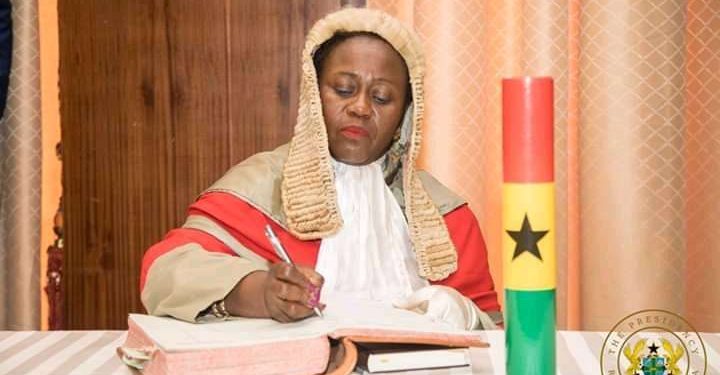The controversy surrounding Ghana’s Chief Justice, Gertrude Araba Esaaba Sackey Torkornoo, deepened on Wednesday as the Office of the President confirmed receipt of two additional petitions seeking her removal from office.
These latest submissions, whose authors have not been publicly disclosed, bring the total number of removal petitions against the Chief Justice to five. The initial three were filed separately on February 14 and March 17, 2025.
Although the specific allegations in the petitions remain confidential—protected under Article 146 of the 1992 Constitution—sources close to the matter indicate they center on accusations of misconduct and abuse of power.
Suspension and Constitutional Process
This new development follows the Chief Justice’s suspension on April 22, 2025, by President John Dramani Mahama. The suspension came after a prima facie case was established by a committee reviewing the initial petitions, and it was carried out in consultation with the Council of State, in line with Article 146(6) of the Constitution.
Chief Justice Torkornoo was earlier served with the petitions and given a 10-day window to respond. Her formal reply, submitted on April 7, was deemed insufficient to dismiss the claims, prompting further investigation.
In accordance with constitutional protocol, Justice Paul Baffoe-Bonnie, the most senior Supreme Court judge, has assumed the role of Acting Chief Justice during the suspension.
Public Reactions and Political Tensions
The suspension has ignited sharp national debate, with critics warning of potential political interference in the judiciary. Opponents, including members of the New Patriotic Party (NPP) and former parliamentary candidate Akosua Manu, have labeled the move a step toward “judicial capture,” raising concerns about the erosion of judicial independence.
Legal experts such as Prof. H. Kwasi Prempeh of the Ghana Center for Democratic Development (CDD-Ghana) have urged for greater transparency, advocating for the grounds and conclusions of the removal process to be made public in order to preserve public trust in the judiciary.
What Happens Next?
With five petitions now filed, a five-member investigative committee is expected to be constituted to examine the claims in detail and determine whether the Chief Justice should be removed from office.
As this historic and high-stakes process unfolds, Ghana’s legal, political, and civil society communities are watching closely—aware that the outcome could have lasting implications for the structure and independence of the country’s judiciary.


